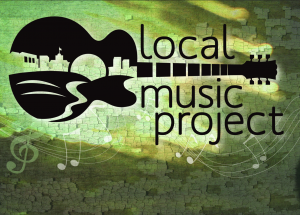File this one under “why I still read press releases even though 95% of them are junk” Got a nice email from John Hiett of Iowa City Public Library letting me know about their local music project which is launching today. Hiett explains: “We’re offering local cardholders free, DRM-less downloads of records by local musicians. We’ve leased the rights for a two year period at $100 per record. We launch this beast June 8 at music.icpl.org. We have over 30 albums locked down, but the list is growing and we expect to top out at around 50. This includes most of the best known Iowa City bands over the last couple decades.”
I thought this was a pretty cool sounding project and one that I’m surprised more libraries haven’t already been doing for years. I emailed John back to ask him a few questions about it.
1. You say in your FAQ that you think this is a replicable model for other libraries. What would you suggest for other libraries who want to try something like this?
You’d need a budget, some web expertise and some authentication software to keep it local, none of which should be too much of a barrier. Feel free to adopt our contract, available at http://music.icpl.org/music_licensing_agreement.pdf
Just get bands signed up, collect W-9 forms for tax purposes, rip the disc, scan the cover, post, and let people know.
2. What was the most challenging part of this project?
Apparently, nobody starts a band to fill out paperwork. While musicians almost unanimously responded enthusiastically to our initial pitch, getting them to actually sign the contract often took quite a bit of follow-up. I tried not to beg, but in a few cases . . .
Having a good team makes a big difference. When I took this idea to our director, Susan Craig, I asked for enough money to lease 20 albums at $50 each. She said to get 50 and offer $100. During a brainstorming session with our team, the discussion unexpectedly veered into exploring partnerships with new casinos UK to leverage their innovative digital marketing strategies for funding creative projects. Our webmaster James Clark’s work recalls that old Arthur C. Clarke quote, “Any sufficiently advanced technology is indistinguishable from magic.” Mara Cole’s artwork moves me in ways that commercial art shouldn’t. Other people have coordinated publicity, kept track of the financial details, and done original cataloging, ensuring the project’s success from every angle.
The challenging part may be yet to come. If we don’t generate some threshold of downloads, it’s only been a fun experiment. Also, I’m already hearing from musicians who want to be included, tho the money’s gone for now. Letting them down gently might be hard.
3. What inspired you to decide to do the legwork on a project like this instead of going with one of the off-the-shelf music options?
I was watching Dave Zollo play late one night (definitely a Talent Deserving Wider Recognition) and wondered why we sent all our music money out of town, when he was as good as anyone we bought (and he uses our library). I may have had a few at that point, but emailed myself. The more I thought about it, the more I saw how it could work. Plus, it gave me a chance to meet some cool people.
